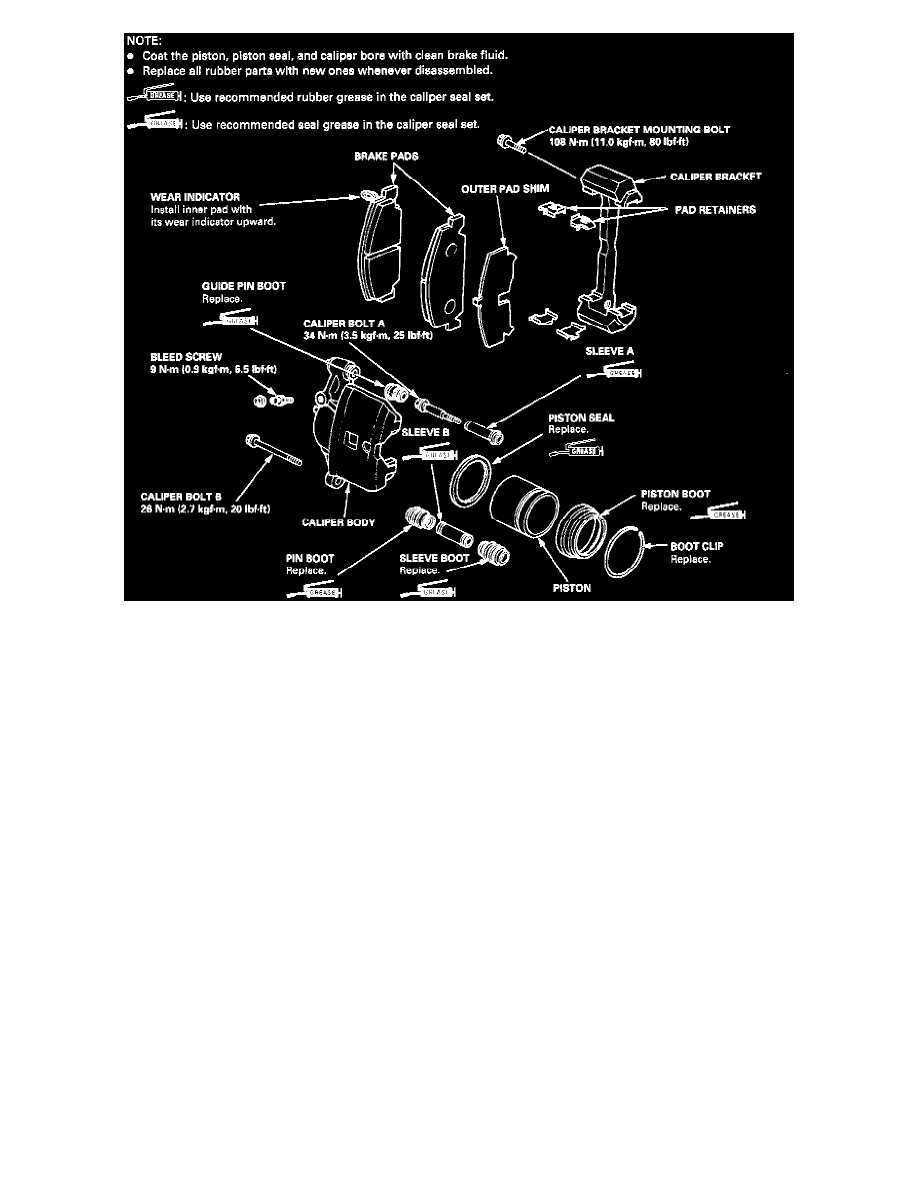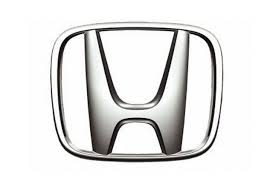Civic LX Sedan L4-1590cc 1.6L SOHC MFI (1998)

WARNING:
-
Never use an air hose or dry brush to clean brake assemblies.
-
Use an OSHA approved vacuum cleaner to avoid breathing brake dust.
-
Contaminated brake discs or pads reduce stopping ability.
-
When reusing the pads, always reinstall the brake pads in their original positions to prevent loss of braking efficiency.
CAUTION:
-
Do not spill brake fluid on the vehicle; it may damage the paint; if brake fluid does contact the paint, wash it off immediately with water.
-
Clean all parts in brake fluid and air dry; blow Out all passages with compressed air.
-
Before reassembling, check that all parts are free of dust and Other foreign particles.
-
Replace parts with new ones whenever specified to do so.
-
Make sure no dirt or Other foreign matter is allowed to contaminate the brake fluid.
-
Always use Genuine Honda DOT 3 Brake Fluid. Using a non-Honda brake fluid can cause corrosion and decrease the life of the system.
NOTE:
-
Coat the piston, piston seal, and caliper bore with clean brake fluid.
-
Replace all rubber parts with new ones whenever disassembled.
1. Clean the piston and caliper bore with brake fluid, and inspect for wear and damage.
2. Coat a new piston seal with the recommended rubber grease in the caliper seal set, and install the seal in the cylinder groove.
